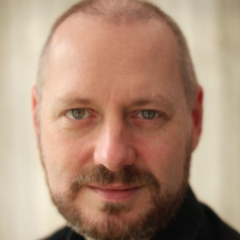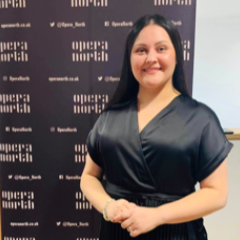What are the benefits of taking online opera singing lessons?
Online opera singing lessons offer a multitude of benefits, especially for those interested in this classical art form. First and foremost, the convenience of learning from the comfort of your own home cannot be overstated. This flexibility allows students to schedule lessons around their personal and professional commitments, making it easier to maintain a consistent practice routine. Online lessons also provide access to a wider range of instructors, including renowned opera singing tutors from different parts of the world, such as Colin Reed from Newark, England, and Elena-Roxana H. from Doncaster, England. These instructors bring diverse techniques and insights from their extensive training and experience. Additionally, online platforms often offer resources like recorded lessons, instructional videos, and materials that can be revisited, aiding in better retention and understanding. Furthermore, virtual lessons can be particularly beneficial for students in remote areas or those who might have difficulty accessing quality instructors locally. Overall, online opera singing lessons make this exquisite art form accessible to a global audience, offering personalised instruction and valuable resources to help students develop their skills effectively.
How do opera singing lessons in the UK differ from those in other countries?
Opera singing lessons in the UK often distinguish themselves through a blend of traditional techniques and modern innovations, influenced by the country's rich musical heritage. The United Kingdom is home to prestigious conservatoires such as the Royal Academy of Music and the Royal College of Music, which have long been associated with high standards in classical music education. Instructors in the UK, like those listed on platforms such as TutorExtra, often incorporate elements of the ABRSM and Trinity syllabuses, which are recognised worldwide for their comprehensive approach to music education. This ensures a structured progression through graded exams and performance opportunities. Moreover, the UK's multicultural environment enriches the learning experience, exposing students to a variety of vocal styles and languages, which is crucial for opera singing. This is complemented by the country's vibrant opera scene, with institutions like the Royal Opera House and English National Opera offering inspiration and exposure to world-class performances. While the foundational techniques of opera singing remain consistent globally, the UK's emphasis on a well-rounded musical education and its cultural diversity provide students with a unique and enriching learning experience.
What unique opportunities does Newark, England offer for aspiring opera singers?
Newark, England, presents several unique opportunities for aspiring opera singers looking to hone their craft. This historic market town, located in the county of Nottinghamshire, is not only picturesque but also culturally vibrant. Newark is home to the Newark Palace Theatre, a popular venue that hosts a range of performances, including musical theatre and opera. This provides local singers with the chance to experience live performances and potentially participate in community productions. Additionally, Newark's proximity to larger cities like Nottingham and Lincoln expands the opportunities for opera singers to connect with broader cultural and musical events. The town's location also makes it convenient for students to access the University of Lincoln, where instructors like Colin Reed offer vocal tuition. Newarkâs community is supportive of the arts, and local festivals often invite performers of different genres, offering opera singers a platform to showcase their talent. The combination of local venues and proximity to major cultural hubs makes Newark a nurturing environment for opera singers to develop and grow their careers.
How does learning opera singing in Doncaster, England enhance a student's musical journey?
Doncaster, England, offers a unique setting for students to enhance their musical journey through opera singing. This town, rich in history and culture, hosts a variety of musical events and festivals that provide aspiring opera singers with numerous opportunities to perform and learn. Doncaster is home to venues such as Cast, a creative hub that supports performing arts, including opera. These venues often host workshops and masterclasses, allowing students to learn from seasoned professionals and gain practical experience on stage. Furthermore, Doncaster's proximity to major cities like Leeds and Sheffield opens up additional avenues for exposure to high-quality performances and collaborations with other musicians. This region's blend of local culture and accessibility to larger artistic communities enriches the learning experience, offering students a comprehensive view of the musical landscape. With instructors like Elena-Roxana H. offering personalised tuition, students can benefit from a tailored approach that aligns with their aspirations, embedding them in a supportive environment that encourages artistic growth and exploration.
What should I look for in an online opera singing instructor?
When selecting an online opera singing instructor, several key factors should be considered to ensure a fruitful learning experience. Firstly, examine the instructor's qualifications and experience. A professional background in classical singing and teaching, as seen with instructors like Colin Reed and Elena-Roxana H., is essential. They should have a solid understanding of vocal techniques, as well as performance experience, which can provide practical insights and guidance. Secondly, consider the instructorâs teaching style and approach. Look for someone who offers personalised lessons and is willing to adapt their teaching methods to suit your individual needs and goals. It's also beneficial if the instructor follows recognised syllabuses such as ABRSM or Trinity, ensuring a structured learning path. Another important aspect is the availability of additional resources, such as recorded sessions or practice materials, which can enhance your learning outside of lessons. Finally, check for testimonials or reviews from former students to gauge the instructor's effectiveness and reputation. A good online instructor should not only teach you the technical aspects of opera singing but also inspire confidence and passion in your musical journey.
Are there specific languages opera singers should focus on learning?
Opera singers often benefit from learning multiple languages, given the international nature of opera performances and the diverse repertoire that spans several languages. Italian, French, and German are the most prevalent languages in opera, as much of the classical repertoire is written in these tongues. Italian is particularly important due to its foundational role in the history of opera, with works by composers like Verdi and Puccini forming a significant part of the opera canon. French and German operas also hold prominent places, with composers such as Bizet and Wagner contributing to the rich tapestry of opera music. Learning these languages can greatly enhance a singer's ability to perform with accurate pronunciation, emotional expression, and understanding of the text. Additionally, having language skills can expand an opera singer's performance opportunities and make them more versatile in their careers. While some singers may choose to focus on one or two languages, a well-rounded opera singer should strive to be familiar with all three, as well as any other languages relevant to their specific interests in the opera world.








